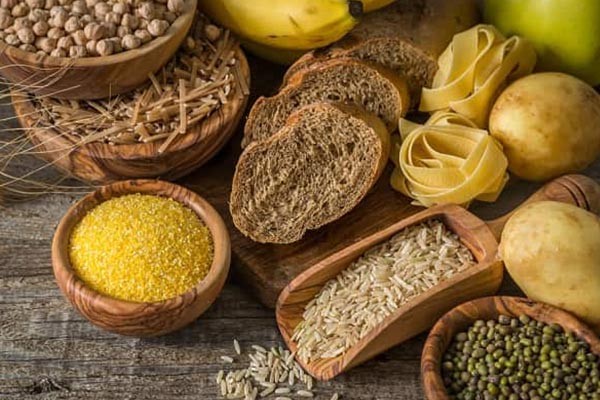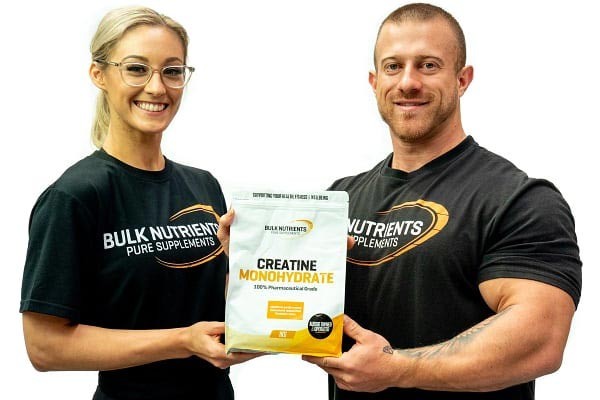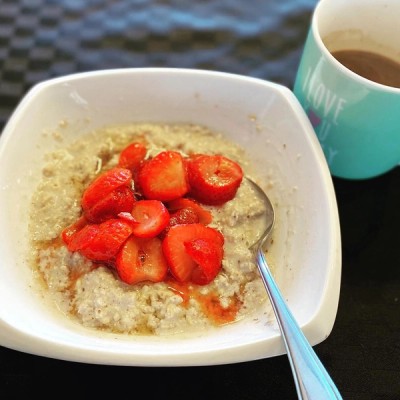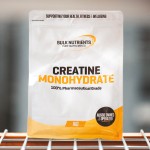Carbohydrates Can Help You Burn Fat

The Myth Surrounding Carbohydrates: Why they don't make you fat
With approaches like the Atkins diet, paleo diet, and the ketogenic diet increasing in popularity from the 80's up until now, people have continually drawn the wrong conclusions. Because these diets largely omitted carbohydrates, people mistakenly thought that they were the enemy.
There was also the bogus insulin hypothesis: carbohydrates spike insulin (which halts fat-burning periodically) so therefore eating them must be bad. It sounded plausible in theory but has been disproven many times, notably in the "Hawaii diet", study. In this research, published in the Hawaii Medical Journal, subjects consumed a diet made up of 77% carbohydrates whilst in a calorie deficit. Not surprisingly, they lost weight as they normally would.
In further research published in the New England Journal of Medicine, scientists placed participants on low carbohydrate diets and then high carbohydrate diets (with protein numbers consistent) to observe any fluctuations. They reported no differences in fat loss between both dietary weight loss approaches.
In a definite "don't try this at home" experiment, Mark Haub, a professor of human nutrition at Kansas State University, conducted his own little study. For 10 weeks Professor Haub ate a small sugary cake every three hours instead of meals. He also added chips and biscuits for variety. Professor Haub's experimental diet was to disprove the fallacy that carbohydrates, notably sugar, lead to fat gain in the absence of a calorie deficit. Professor Haub lost 12 kilograms and attracted media attention around the world.
Obviously, such a diet is not all recommended and is an extreme example. But it's pertinent to mention in the context of many still believing that carbohydrates cause immediate fat gain.
So now we know why carbohydrates are misunderstood and how they don't cause fat gain directly. Let's now take a look at how they can help us.

Carbohydrates and hunger hormones: Leptin and optimal fat loss
Research from the journal Nutrition and Metabolism declares a definite truth: carbohydrates are critical for optimal exercise performance. This means that to give our best in the gym, which ultimately leads to more calories burned, we must consume adequate carbohydrates.
TIP: A study published in Clinical Science reveals that further to the many benefits of creatine, it also stimulates the storing of carbohydrates in skeletal muscle. So be sure to continue to take your creatine for optimal performance and potential fat loss in the gym. (Bulk Nutrients creatine plug!)
Moreover, carbohydrates like barley, oatmeal, beans, nuts, and fruits contain fibre, which induces satiety. A large portion of a successful weight loss diet is about the struggle to feel full. When we achieve this we're less likely to overeat and gain body fat.

Carbohydrates are also important when it comes to our bodies appetite hormone leptin. You've no doubt experienced the feeling when your leptin is replenished; so full and satisfied you can barely walk! Conversely, when we partake in fat loss diets, prolonged periods of a calorie deficit means our leptin levels fall. This is when we feel less energised and reluctant to do anything, and is our body signalling us to preserve energy for survival (a critical event for our pre-historic ancestors).
But as research states, carbohydrates are the most effective macronutrient at restoring leptin levels. And whilst research published in The Journal of Clinical Endocrinology and Metabolism suggests this may be only for 5-10 hours, it still allows us to have a mental break from our diet, prevent a binge via induced satiety, and replenish those carbohydrates we've used in the gym in an effort to lose weight.
Let's use the hypothetical example of Bulk Nutrients customer "Tom." How we get to an individual's macronutrient profile for weight loss is beyond the scope of this article, but let's say at 90 kilograms, Tom is on a diet set at a 20% calorie deficit. His macronutrient breakdown hypothetically would be:
- Protein: 200 grams
- Carbohydrates: 150 grams
- Fat: 80 grams
Assuming protein numbers are being adequately met (as they are above) this is an example of how carbohydrates make up a healthy fat loss diet. Because as we've learned, we need them to give our best effort in the gym, and if we're eating them in a calorie deficit we simply cannot gain weight.
Moreover, carbohydrates are actually low in calories: 4 calories per gram as opposed to 9 calories per gram for fat.
Carbohydrates can support your fat loss efforts
It boils down to this: carbohydrates are drastically misunderstood and are critical for optimal exercise performance that aids in fat loss. Carbohydrates can also help us achieve satiety and far fewer calories than fat. For as long as we're eating in a calorie deficit, and protein numbers being correctly administered, carbohydrates are indeed a worthy tool when it comes to fat loss.
References:
- Dirlewanger M, di Vetta V, Guenat E, Battilana P, Seematter G, Schneiter P, Jéquier E, Tappy L. Effects of short-term carbohydrate or fat overfeeding on energy expenditure and plasma leptin concentrations in healthy female subjects. Int J Obes Relat Metab Disord. 2000 Nov;24(11):1413-8. doi: 10.1038/sj.ijo.0801395. PMID: 11126336.
- Fernández-Elías VE, Ortega JF, Nelson RK, Mora-Rodriguez R. Relationship between muscle water and glycogen recovery after prolonged exercise in the heat in humans. Eur J Appl Physiol. 2015 Sep;115(9):1919-26. doi: 10.1007/s00421-015-3175-z. Epub 2015 Apr 25. PMID: 25911631.
- Kolaczynski JW, Ohannesian JP, Considine RV, Marco CC, Caro JF. Response of leptin to short-term and prolonged overfeeding in humans. J Clin Endocrinol Metab. 1996 Nov;81(11):4162-5. doi: 10.1210/jcem.81.11.8923877. PMID: 8923877.
- McArdle WD, Katch FI, Katch VL: Essentials of Exercise Physiology. 1994, Philadelphia, PA. Lea&Febiger, 563-pp. 35–56
- Morton GJ, Cummings DE, Baskin DG, Barsh GS, Schwartz MW. Central nervous system control of food intake and body weight. Nature. 2006 Sep 21;443(7109):289-95. doi: 10.1038/nature05026. PMID: 16988703.
- Phinney, S.D. Ketogenic diets and physical performance. Nutr Metab (Lond) 1, 2 (2004). https://doi.org/10.1186/1743-7075-1-2
- Sacks FM, Bray GA, Carey VJ, Smith SR, Ryan DH, Anton SD, McManus K, Champagne CM, Bishio LM, Laranjo N, Leboff MS, Roos JC, de Jonge L, Greenway FL, Loria CM, Obarzanek E, Williamson DA. Comparison of weight-loss diets with different compositions of fat, protein, and carbohydrates. N Eng J Med. 2009 Feb 26;360(9): 859-73. doi: 10.1056/NEJMoa0804748.
- Shintani TT, Beckham S, Brown AC, O'Connor HK. The Hawaii Diet: ad libitum high carbohydrate, low-fat multi-cultural diet for the reduction of chronic disease risk factors: obesity, hypertension, hypercholesterolemia, and hyperglycemia. Hawaii Med J. 2001 Mar;60(3):69-73. PMID: 11320614.
- Slavin J, Carlson J. Carbohydrates. Adv Nutr. 2014;5(6):760-761. Published 2014 Nov 14. doi:10.3945/an.114.006163
- van Loon LJ, Murphy R, Oosterlaar AM, Cameron-Smith D, Hargreaves M, Wagenmakers AJ, Snow R. Creatine supplementation increases glycogen storage but not GLUT-4 expression in human skeletal muscle. Clin Sci (Lond). 2004 Jan;106(1):99-106. doi: 10.1042/CS20030116. PMID: 14507259.
- Warrilow A, Mellor D, McKune A, Pumpa K. Dietary fat, fibre, satiation, and satiety-a systematic review of acute studies. Eur J Clin Nutr. 2019 Mar;73(3):333-344. doi: 10.1038/s41430-018-0295-7. Epub 2018 Aug 30. PMID: 30166637.
Related Blogs

Why Do Carbohydrates Make Me Tired?
Posted by Dayne Hudson
Estimated reading time: 6 minutes

When Is the Best Time to Eat Carbohydrates?
Posted by Dayne Hudson
Estimated reading time: 4 minutes





























